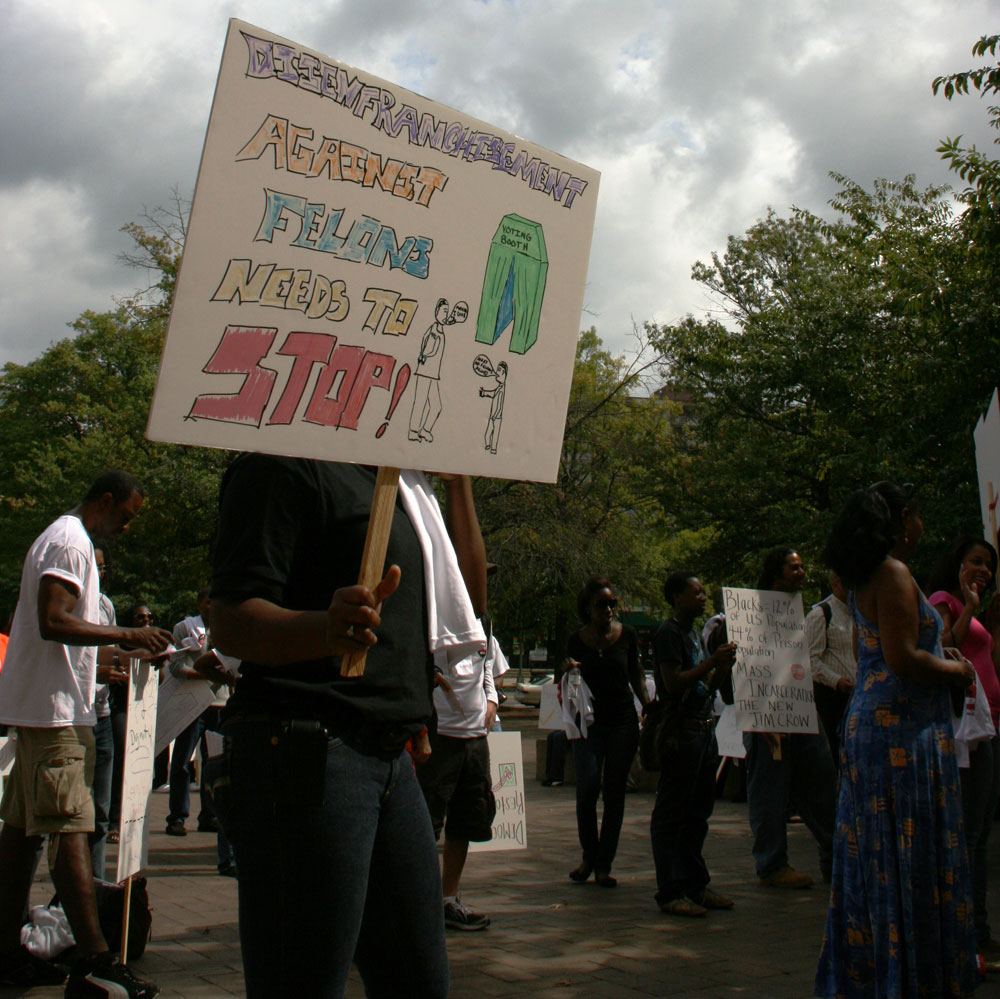
October 15, 2020; WKMS-FM (Murray, Tennessee)
How many Tennessee residents convicted of felony offenses have successfully petitioned the state to have their voting rights restored since November 2016? The answer: 35. Meanwhile, 456,000 state residents are barred from voting due to their criminal record. That’s 35,000 more than four years ago and a sizable number for a state with fewer than four million registered voters.
“The state has some of the strictest rules in the country for people who want to restore their voting rights after they’re convicted of a felony,” reports Samantha Max for local Tennessee national public radio affiliate WKMS.
The Tennessee data are part of a larger national study conducted by the nonprofit Sentencing Project. There is some good news in the report. The 2020 study finds 5.17 million disenfranchised due to a criminal conviction, four million of whom have completed their sentences. That is down from 6.11 million in 2016, but 5.17 million is a high number still.
In some states, such as Tennessee, numbers are getting worse, not better. In fact, in Tennessee, Latinx residents with a felony conviction are disenfranchised at a higher rate than in any other US state, comprising more than 10 percent of all potential Latinx voters. Tennessee also ranks second highest both for overall percentage of voting-age residents who can’t vote due to a felony conviction and for the percentage of Black voters banned from the polls.
Sign up for our free newsletters
Subscribe to NPQ's newsletters to have our top stories delivered directly to your inbox.
By signing up, you agree to our privacy policy and terms of use, and to receive messages from NPQ and our partners.
As for national numbers, some of the key findings of the report include the following:
- In three states—Alabama, Mississippi, as well as Tennessee—more than eight percent of the adult population, one of every thirteen people, are disenfranchised.
- Despite the passage of Proposition 4 with a five-percent “yes” vote designed to restore voting rights, a subsequent state law severely limits its reach. More than 900,000 Floridians remain disenfranchised, keeping it the nation’s leading state for limiting voting rights. Only 3,250 Floridians had their voting rights restored.
- Over 6.2 percent of the adult Black population is disenfranchised, compared to 1.7 percent of the remaining US population.
- Black disenfranchisement rates vary significantly by state. In seven states—Alabama, Florida, Kentucky, Mississippi, Tennessee, Virginia, and Wyoming—more than one in seven Black Americans is disenfranchised, twice the national average.
Christopher Uggen, lead author of the report, notes, “I’ve been following these legal changes for a couple decades now, and I was really excited to work on this report this summer and hopeful, based on all these legal changes.”
Uggen adds that, “It’s utterly disappointing and frustrating that we head into this election with that level of dilution of voting power, particularly in communities of color.”
The Sentencing Project report does note a few bright spots. In particular, Kentucky has restored voting rights to 181,361 residents since 2016. In Virginia, the number was 195,371. Key to these shifts was that the governors of both states, both Democrats, signed executive orders that made it possible for all people who completed their sentences to be eligible for voting rights restoration.
The report authors conclude, “Despite significant legal changes in recent decades, about 5.2 million Americans are disenfranchised in 2020. When we break these figures down by race and ethnicity, it is clear that disparities in the criminal justice system are linked to disparities in political representation.” The report authors add that about four million of the 5.17 million adults who have lost their voting rights are no longer in prison. Of this total, close to a third, or 1.3 million, are African American.—Steve Dubb













